Maronite Church in Lebanon celebrates beatification of 17th-century scholar and patriarch
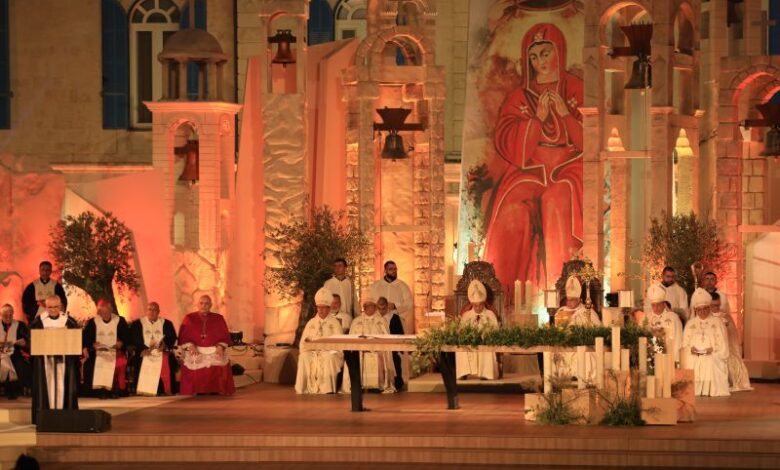
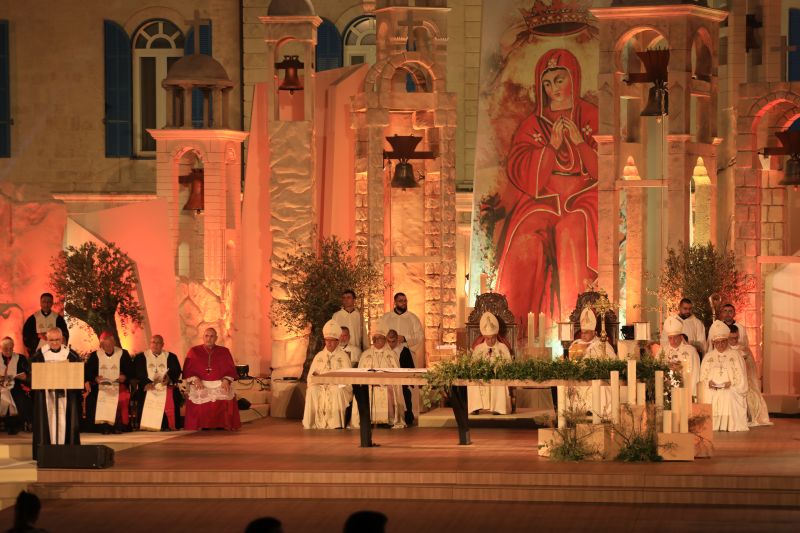 An estimated 7,000 people gathered to celebrate the beatification of Patriarch Estephan Douaihy on Aug. 2, 2024, in Bkerké, Lebanon. / Credit: Marwan Semaan/ACI MENA
An estimated 7,000 people gathered to celebrate the beatification of Patriarch Estephan Douaihy on Aug. 2, 2024, in Bkerké, Lebanon. / Credit: Marwan Semaan/ACI MENA ACI MENA, Aug 5, 2024 / 14:28 pm (CNA).
In a ceremony that blended centuries-old tradition with new hope, the Maronite Catholic Church celebrated the beatification of Patriarch Estephan Douaihy on Friday, Aug. 2, in Bkerké, Lebanon.
An estimated 7,000 people gathered at an outdoor venue to mark the significant step toward sainthood for a religious leader and a pioneering historian — Patriarch Estephan Douaihy.
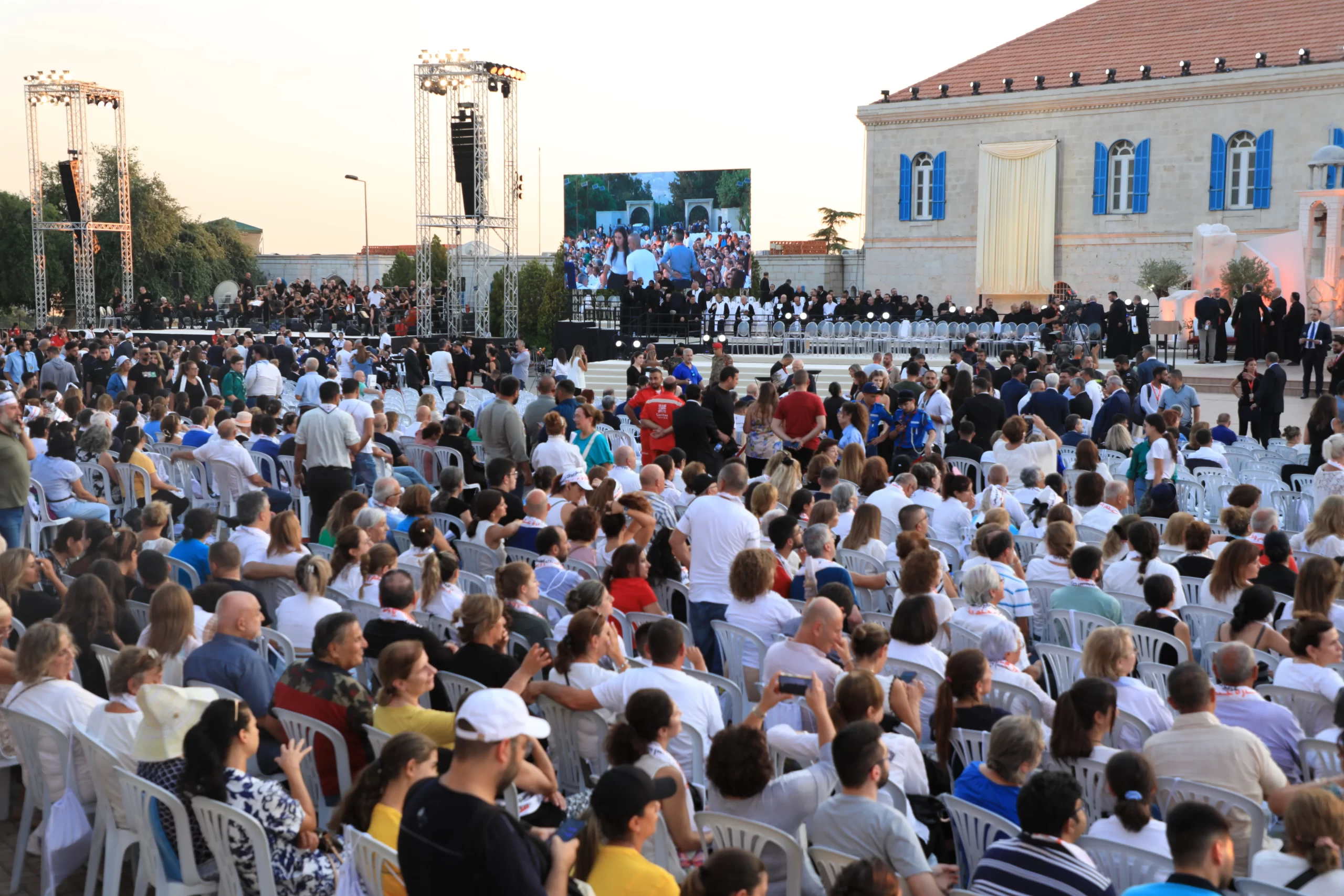
Despite economic turmoil and political instability in Lebanon, the event marks an important milestone for the Maronite Church.
A celebration rooted in history
Bkerké, the episcopal see of the Maronite Catholic Patriarchate of Antioch, was adorned with symbolic ornaments for the day of celebration.
A representation of the image of Our Lady in the Qannubine Monastery, which is a fresco of the Assumption of Mary, was displayed behind the altar, flanked by 10 church bells.
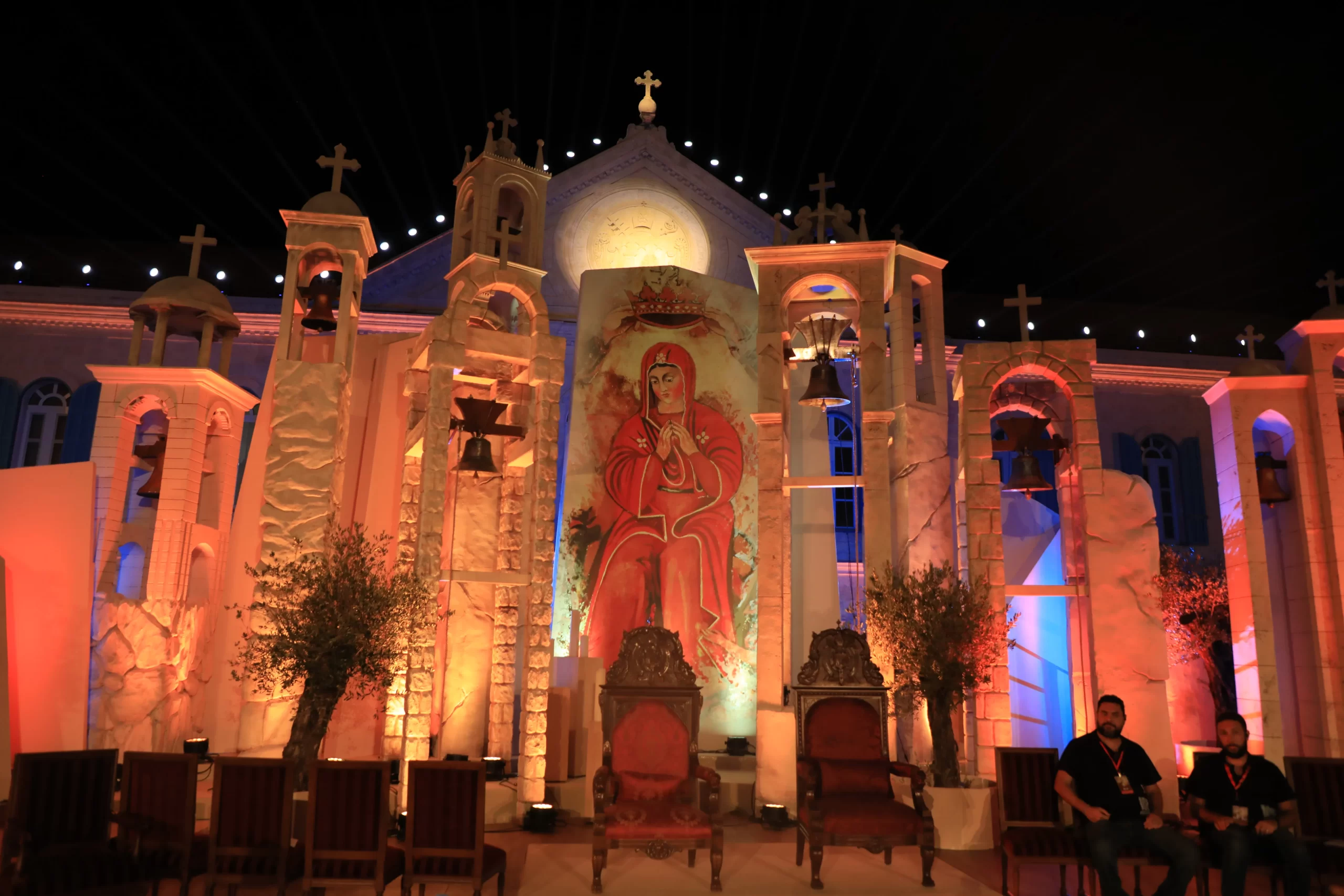
Maronite Patriarch Bechara Boutros al-Rai presided over the Mass with papal representative Cardinal Marcello Semeraro, prefect of the Dicastery for the Causes of Saints.
Simultaneously at the Vatican, another ceremony was held to celebrate the newly beatified patriarch, as the Eastern Catholic Church is in full communion with Rome.
In his homily, Semeraro stated: “We often recite in our prayers the psalm, ‘The righteous flourish like the palm tree and grow like a cedar in Lebanon.’” He elaborated that a palm tree is a vital source of life in the desert. Similarly, the cedar of Lebanon stands as a steadfast symbol of strength and endurance in God’s house, the Church. The cardinal likened Douaihy to a cedar, devoted to serving his people.
“Douaihy was the patriarch of the Maronite Church for over 30 years, during a period of external persecution and internal schism,” said Semeraro, explaining that the new saint-to-be accepted these hardships, shared the sufferings of Jesus, and forgave others.
At the end of the Mass and procession, Patriarch al-Rai received the first picture of Blessed Douaihy, painted by Carmelite nuns.

From adversity to spiritual leadership
Douaihy was born in 1630 in the northern village of Zgharta, now part of Lebanon but then under Ottoman rule. His father died when he was 3 years old. He won a scholarship to Rome when he was 11, but his promising future seemed bleak when he lost his sight at 14, facing the prospect of being sent back to Lebanon.
In a helpless moment, the young Douaihy turned to the Virgin Mary. After spending the whole night in ardent prayer before an icon of Our Lady, his sight was reportedly restored — miraculously, it was believed.
This profound personal experience shaped Douaihy’s spiritual journey and his future as a religious leader. It also instilled in him a sense of purpose and dedication to his homeland. At the age of 20 — despite being offered a prestigious position as a seminary head — he chose to return to Lebanon. This choice was rooted in a promise he made to the Virgin Mary: to return home and share his knowledge with his fellow Lebanese.
Douaihy died in 1704 at the age of 73 in Kadisha Valley, Lebanon.
A message for modern Lebanon
For many Lebanese Maronites, Douaihy’s beatification goes beyond its religious significance.
“This is a big day for us, especially now. Perhaps, God is giving us a sign of hope,” said Father Toufic Daccache in an interview with ACI Mena, CNA’s Arabic-language news partner.
“Douaihy loved his country, unlike many of us who leave after every obstacle,” Daccache noted, touching on Lebanon’s ongoing exodus.
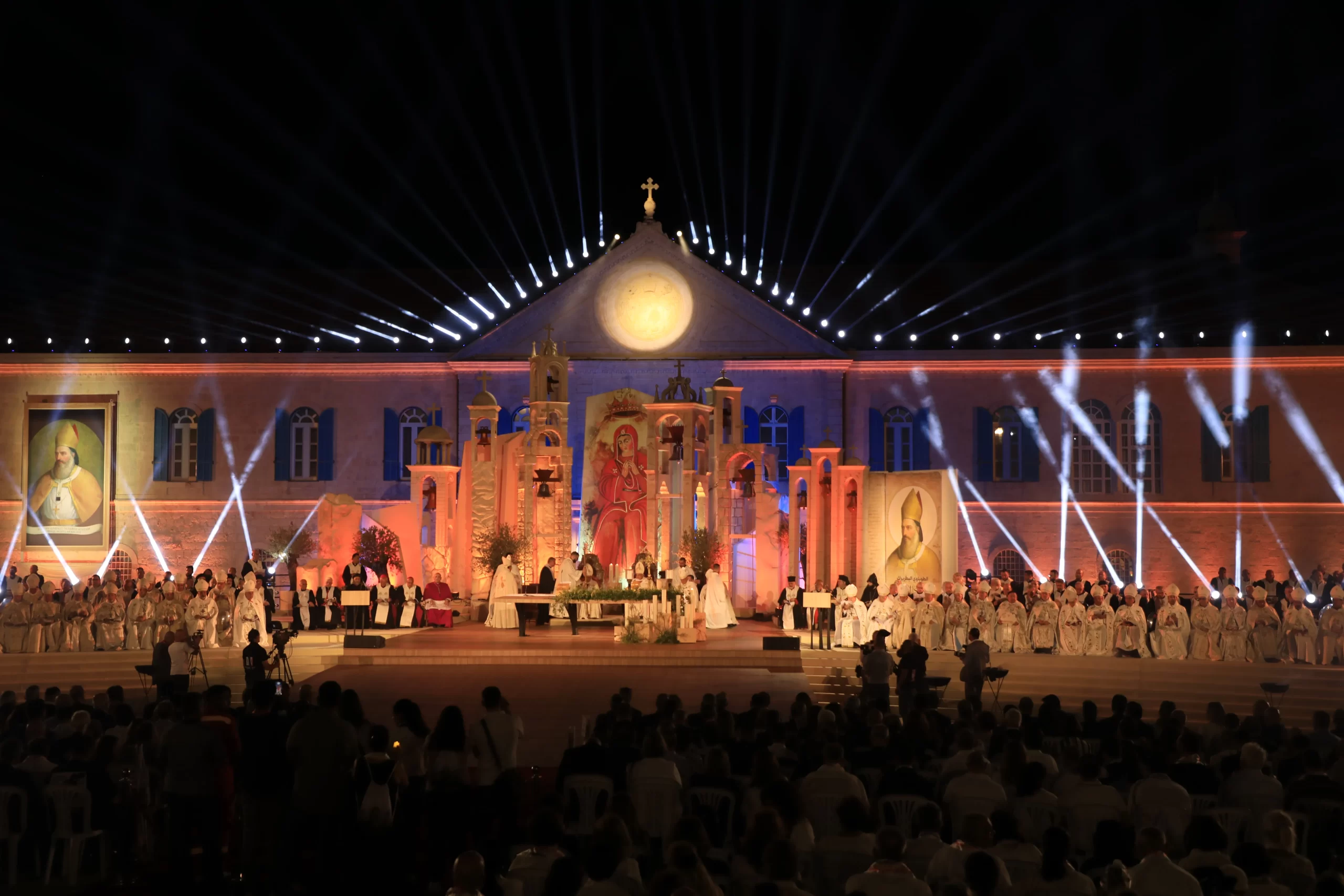
As Lebanon looks to its past for inspiration to navigate its turbulent present, Douaihy’s legacy offers a stark reminder of the country’s resilience in the face of adversity.
While the bells of Bkerké fell silent at the end of the ceremony, a message of hope was left for a nation in need of unity and renewal.
“If Patriarch Douaihy were among us today many Lebanese would be called to ‘Guard the treasure that has been entrusted to us,’” Daccache said.
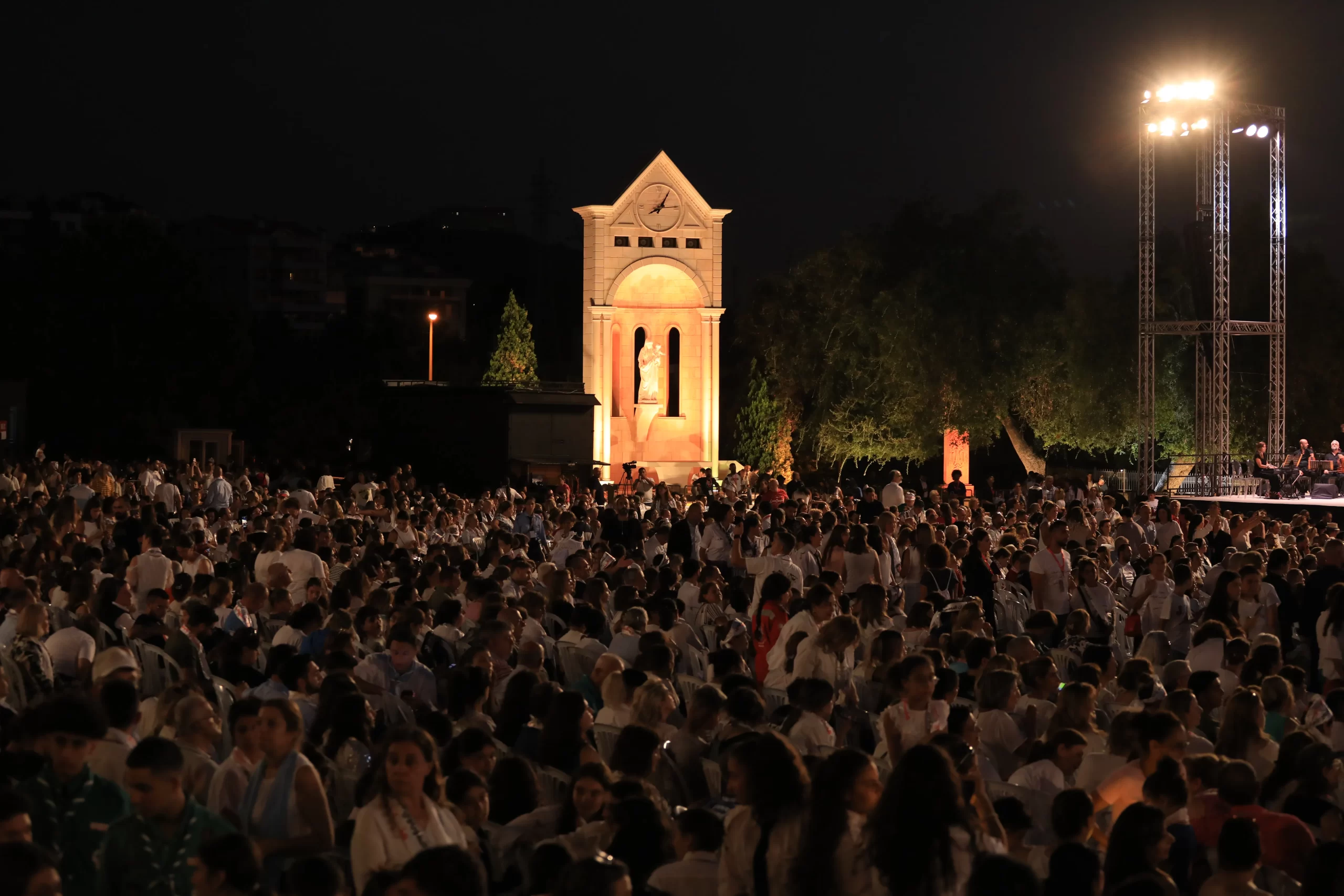
This article was first published by ACI Mena, CNA’s Arabic-language news partner, and has been translated and adapted by CNA.



